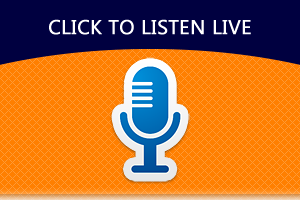Inattentive ADHD – 8 Alternatives To Medication
If you have an ADHD child, there are a host of strategies, some more controversial than others, that parents may want to consider to deal with the problem. For example, to medicate or not medicate is a hot button issue that many parents of ADHD kids feel passionate about, on both sides. But before we go any further let’s establish that this is a Judgment Free Zone. We all just want the best for our kids. Our objective here is to present and explore all available options in a way that is thoughtful, compassionate, informative, and above all, I hope, useful and helpful to a family dealing with Inattentive ADHD.
Partner with your Child’s Teacher to create an ADHD-Friendly Classroom.
Everyone should do this because it is easy and has a huge impact on your child’s success or failure at school. Understand that because Inattentive ADHD does not present an obvious or disruptive behavior problem, many teachers may be unfamiliar with it, or not even know it exists. Provide them a one page overview of Inattentive ADHD, and ask that they implement 3 to 5 specific accommodations you have researched that will be helpful to your child. These might include, but are not limited to…making sure your child is seated in the front of the class…shortening your child’s homework assignments…having your child work in small groups in class…or allowing your child more time to complete tests. As long as you have a medical diagnosis of ADHD the teacher is allowed, in fact encouraged, to help you with this. None of these requests should be a burden on the teacher, draw undue attention to your child, or take too much time away from the rest of the class. Small but meaningful changes can make all the difference regarding your child’s success at school. But none of it will work without the teacher’s willing involvement and active cooperation.
Investigate Cognitive Learning Programs.
One of the more reputable and established cognitive learning programs, Lindamood Bell requires a huge commitment of time (both you and your child) and cash (about $10,000 to $20,000). The general idea is that unlike traditional tutorials that try to improve grades by drilling and using different ways to explain information– cognitive learning seeks to identify problems with the way the brain is processing information…then takes a targeted approach to retraining the brain how to learn.
This would seem to be a perfect fit for ADHD kids, both Hyperactive and Inattentive. But the big price tag puts this option out of reach for many people. And even though the program has its’ fervent supporters, there are plenty who feel the gains did not justify the investment. My nephew, who has Inattentive ADHD, did the program. His Dad, (my brother) seems to feel he did receive some benefit but it was sort of a delayed effect. Check it out and decide for yourself.
Create a Structured Environment at Home where Routines are Established and Repeated Every Day.
This is a no-brainer that pretty much everyone agrees provides significant benefit for ADHD kids, both Hyperactive and Inattentive. Left to his own devices, my son would watch Cartoon Network and play his PSP from the minute he gets home until Midnight. Imposing a Routine, (come home, take a break, have a snack, finish homework, eat dinner, put on PJs, watch a little TV before going to bed at 9:30) is calming and reassuring, instills good habits, encourages independence, responsibility, and dramatically cuts down on nagging and procrastination. It also helps carve out some time that can be preserved for family life, which is important to maintain balance and a happy household. Honestly, there is no substitute for a parent putting in the time and attention, every day, to work with your child, drill them on the basics, discipline and correct them, encourage and motivate them, and generally help to focus and keep them on track. By you steadfastly demonstrating to them that they can do it, your child’s confidence and competency will improve, bit by bit, every day. No matter how much they fuss now, they’ll thank you later.
Experiment with Diet and Nutrition.
The Feingold Dietwas used originally as a diet for allergies. Improvement in behavior and attention was first noticed as a “side effect.” It is a reasonable first step to take before (or with if already begun) drug treatment for ADHD. Though studies show only 1 or 2 children out of 100 show significant reduction of ADHD symptoms by this diet alone, it might be a worthwhile adjunct therapy especially for a child with undiscovered allergies. The Feingold Diet eliminates these additives:Artificial (synthetic) coloring…Artificial (synthetic) flavoring…Aspartame (Nutrasweet, an artificial sweetener)…Artificial (synthetic) preservatives BHA, BHT, TBHQ.
The ADHD Diet Planat newideas.net. It’s basically high protein/low carb…protein and mineral supplements…lots of water, fresh fruit and vegetables…and eliminate certain toxins. I tried, but had to abandon this as I couldn’t get my son to stick to it. A tip that did work from this program was giving my son a small amount of coffee and milk to jumpstart his brain especially before evening homework.
Add Herbs and Supplements
Consult your doctor about over-the counter or mail order supplements. There is so much stuff out there that it will make you dizzy trying to determine what might work or what is just a bunch of hype and hooey. I tried two of the commercially available homeopathic ADHD solutions to aid attention and memory that sounded promising. They are not that cheap and can only be obtained online, which was a slight hassle. I did think I noticed some small improvement in my son, but not enough to consider this a solution to the problem. If your child is not a good pill taker they might balk at taking the larger capsules. Some people do report amazing success with various supplements, hence some of the very compelling testimonials offered on sales websites. Each person’s experience and results can vary widely, so I think it’s worth a try to see if it might work for your child.
One thing that is widely accepted as being effective to help ADHD is Omega-3 supplements. I got them for myself and for my son but neither of us could stand the fishy aftertaste. However I found Omega Red Omega-3 krill oil capsules that deliver all the benefits with none of the yucky taste, so we will be adding these to our regimen.
Incorporate Regular Exercise.
Exercising is one of the most effective ways to reduce the symptoms of ADD/ADHD. Physical activity boosts the brain’s dopamine, norepinephrine, and serotonin levels-all of which affect focus and attention. Try walking, skateboarding, hiking, dancing or playing a favorite sport. Encourage your child to put down the video games and play outside.
Look into Hypnosis, Neurofeedback, or Behavior Modification.
Neurofeedback is a type of biofeedback that can be used to train ADHD children to change their brain wave patterns to be more like normal children. Using an electroencephalograph to monitor the brain waves and a system of positive reinforcement, the children learn how to make their brains become more attentive. The result is that there is a significant reduction in ADHD symptoms and improvements in behavior, relative to how well the children learn to control their own brain function.
Although it’s been around for a while, there is controversy as to whether or not this actually works. Treatment takes a long time, sessions are expensive and are not covered by insurance. Kids have to be really motivated, and we know that can be a problem for ADHD kids. But if it does work, the results, unlike with medication, are permanent and have no negative side effects. If you are interested, I would check out one of the online Neurofeedback programs first.
Regarding Behavior Modification, from what I have read, treatments run the gamut from therapy with a psychologist…to off the shelf or online behavior modification programs…to basic common sense tactics employing consistency, boundaries, rewards and consequences. Behavior was not a big issue for us, but would probably be a key strategy for Hyperactive ADHD kids. There’s plenty of info online to help you with this.
Try Educational Computer Games.
Speaking of looking online, there is a wealth of computerized learning aids available that you can try out for free. For example, my son needed help with his multiplication tables, and I found a game created to do just that. He liked it at first, then got bored with the repetition and refused to play it. But other kids seemed to like it and stick with it. Inattentive kids seem to respond to the hyper stimulation provided by formats like computer games, so if you can find one that targets a skill that needs improvement, try it out for free first. If it keeps your kid’s interest, by all means, invest in it.
A Word on Medication.
For some families medication has produced good, in fact at times miraculous, improvement in their children’s academic and social life. Others have had more mixed or even negative experiences. The most productive thing you can do is thoroughly investigate every single option available, with an open mind. Talk to your child’s doctor. Research online. Reach out to other parents and survey their experiences. Consider your child’s unique personality and situation. Only then can you make an informed decision and be confident you have acted in the best interest of your child. Sometimes it will require a combination of options and strategies to overcome your child’s Inattentive ADHD. These are tough challenges. But stay positive and be encouraged because many parents have had success finding effective solutions and been rewarded with great results in their battle with ADHD. I hope this helped give you some ideas to research further. Good luck and Godspeed.












 Hits Today : 353
Hits Today : 353 Total Hits : 739683
Total Hits : 739683 Who's Online : 1
Who's Online : 1